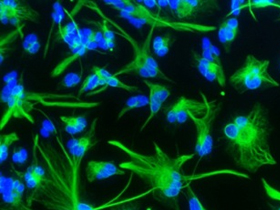It is evident that mutations give rise to no evolutionary development, which places both neo-Darwinism and the punctuated model of evolution in a very severe predicament. (See Mutation and The Punctuated Model of Evolution.) Since mutations have a destructive effect, then the macro-mutations referred to by the proponents of punctuated evolution would lead to major damage in living things. Some evolutionists place their hopes in mutations occurring in regulatory genes. However, the destructive character that applies to other mutations also applies to these. The problem is that any mutation is a random change, and any random change in such a structure as complex as DNA gives rise to damaging consequences.
However though macro-mutations of many varieties produce drastic changes, the vast majority will be incapable of survival, let alone show the marks of increasing complexity. If structural gene mutations are inadequate because of their inability to produce significant enough changes, then regulatory and developmental mutations appear even less useful because of the greater likelihood of nonadaptive or even destructive consequences. 203
Experiments and observations show that mutations develop no new genetic information, but only damage the mutated individual, and that it is clearly inconsistent for the proponents of punctuated evolution to expect any such great successes from mutations.
203. Lane Lester, Raymond Bohlin, The Natural Limits to Biological Change, Dallas: Probe Books, 1989, 9.141.


